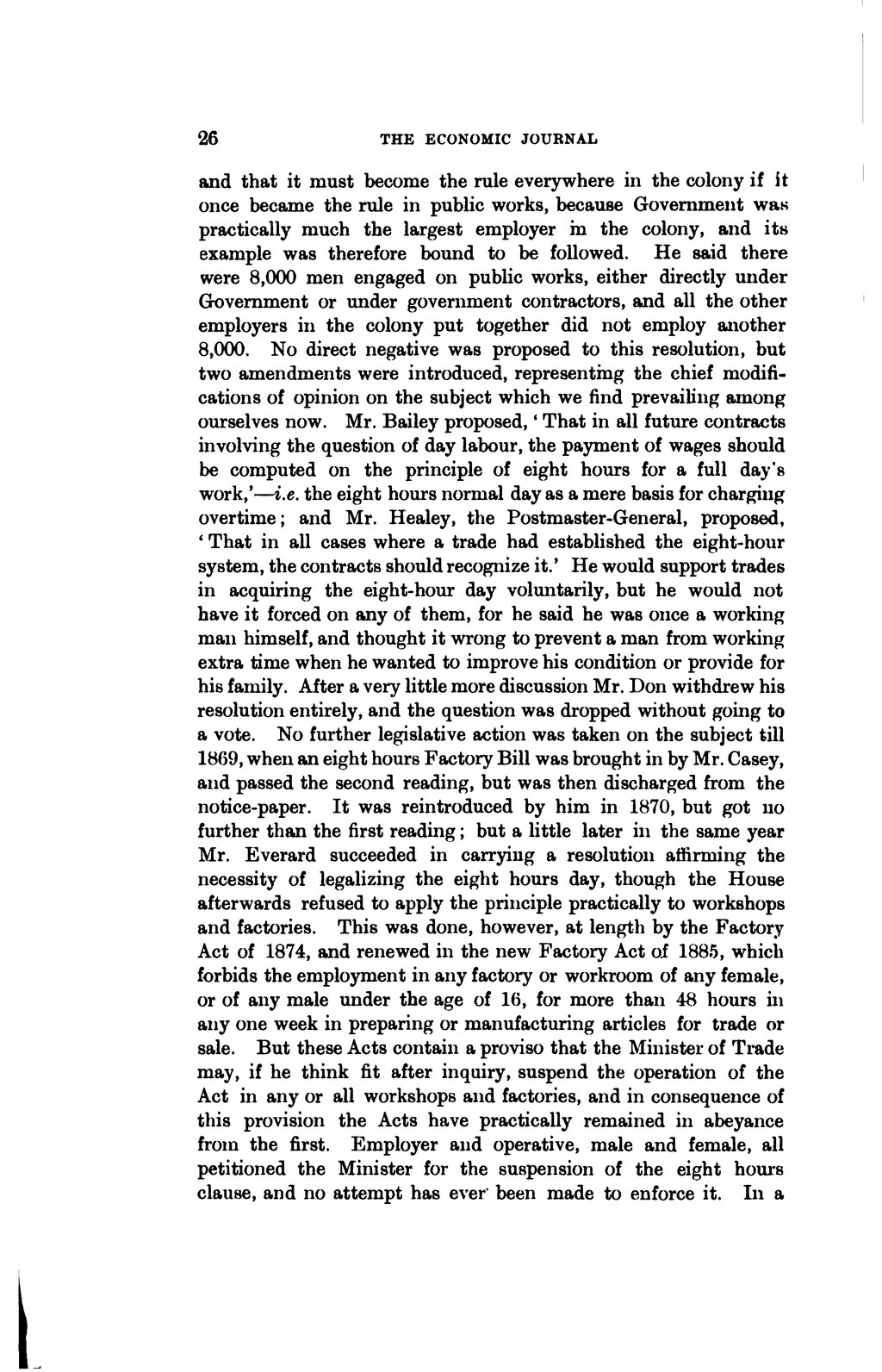and that it must become the rule everywhere in the colony if it once became the rule in public works, because Government was practically much the largest employer in the colony, and its example was therefore bound to be followed. He said there were 8,000 men engaged on public works, either directly under Government or under government contractors, and all the other employers in the colony put together did not employ another 8,000. No direct negative was proposed to this resolution, but two amendments were introduced, representing the chief modifications of opinion on the subject which we find prevailing among ourselves now. Mr. Bailey proposed, 'That in all future contracts involving the question of day labour, the payment of wages should be computed on the principle of eight hours for a full day's work,'—i.e. the eight hours normal day as a mere basis for charging overtime; and Mr. Healey, the Postmaster-General, proposed, 'That in all cases where a trade had established the eight-hour system, the contracts should recognize it.' He would support trades in acquiring the eight-hour day voluntarily, but he would not have it forced on any of them, for he said he was once a working man himself, and thought it wrong to prevent a man from working extra time when he wanted to improve his condition or provide for his family. After a very little more discussion Mr. Don withdrew his resolution entirely, and the question was dropped without going to a vote. No further legislative action was taken on the subject till 1869, when an eight hours Factory Bill was brought in by Mr. Casey, and passed the second reading, but was then discharged from the notice-paper. It was reintroduced by him in 1870, but got no further than the first reading; but a little later in the same year Mr. Everard succeeded in carrying a resolution affirming the necessity of legalizing the eight hours day, though the House afterwards refused to apply the principle practically to workshops and factories. This was done, however, at length by the Factory Act of 1874, and renewed in the new Factory Act of 1885, which forbids the employment in any factory or workroom of any female, or of any male under the age of 16, for more than 48 hours in any one week in preparing or manufacturing articles for trade or sale. But these Acts contain a proviso that the Minister of Trade may, if he think fit after inquiry, suspend the operation of the Act in any or all workshops and factories, and in consequence of this provision the Acts have practically remained in abeyance from the first. Employer and operative, male and female, all petitioned the Minister for the suspension of the eight hours clause, and no attempt has ever been made to enforce it. In a
Page:The Economic Journal Volume 1.djvu/46
Appearance

